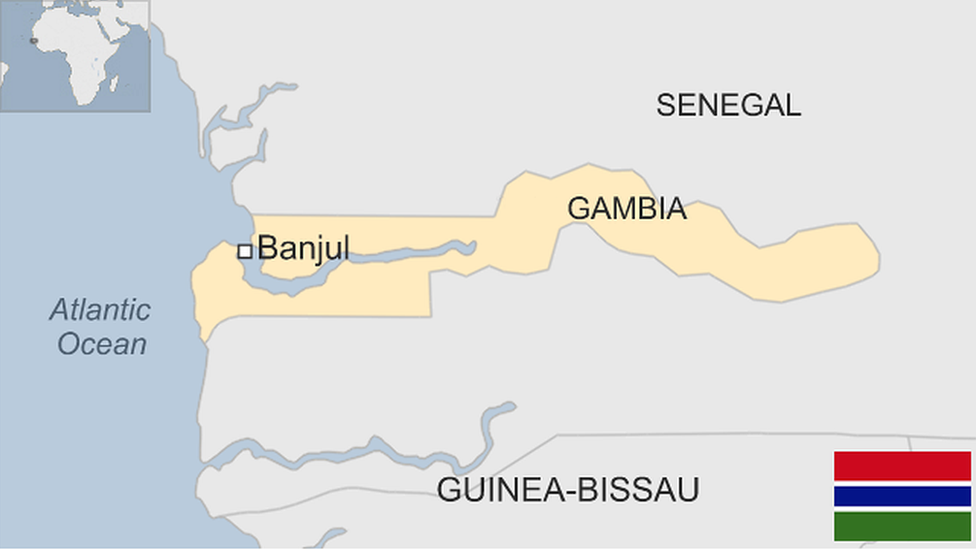Yahya Jammeh warned not to return to The Gambia
- Published
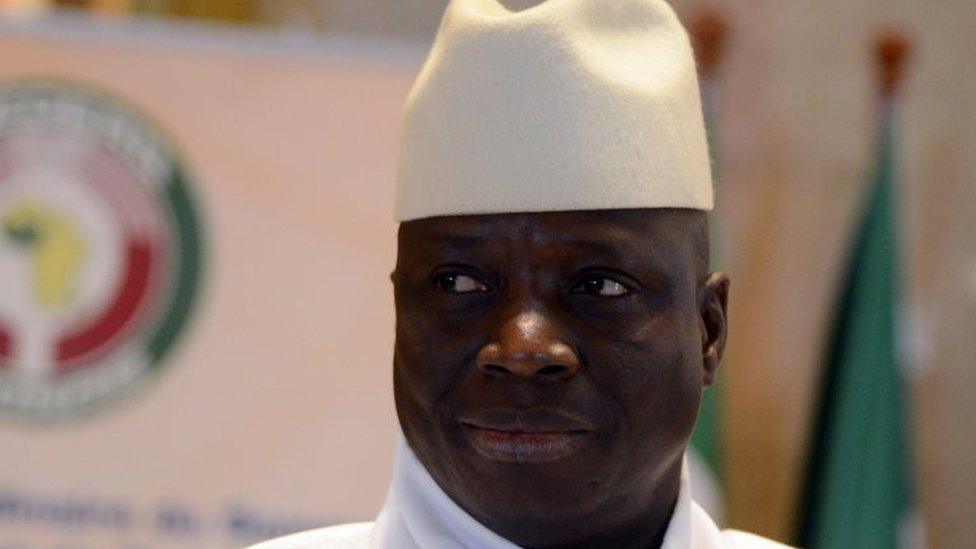
Yahya Jammeh ruled The Gambia for 22 years
The Gambia has warned its ousted leader Yahya Jammeh not to try to return home from his exile in Equatorial Guinea.
Mr Jammeh's safety couldn't be guaranteed if he did return without permission, a government spokesman told the BBC.
A spokesman for Mr Jammeh's party said he could arrive back at any time.
The Gambia's neighbours forced Mr Jammeh into exile in Equatorial Guinea after he refused to accept his defeat in elections in December 2016.
Having seized power in a coup in the popular tourist destination in 1994, he went on to hold regular elections, but was later accused of human rights abuses, including extrajudicial killings, torture and arbitrary detention.
These have been aired over the past year at public hearings of the Truth, Reconciliation and Reparations Commission (TRRC) set up by his successor, President Adama Barrow.
Mr Jammeh has refused to co-operate with the commission.
Where is Yahya Jammeh?
Mr Jammeh has expressed his desire to return to his country.
But as far as anyone knows, he remains in Equatorial Guinea, some 3,000 km (1,900 miles) from The Gambia.
The interim leader of Mr Jammeh's party, Ousman Rambo Jatta, refused to say exactly when the ousted leader would arrive in The Gambia.
"He is on his way... He can be here any time," he told the BBC's Focus on Africa programme.

Yahya Jammeh: At a glance
Born in May 1965
Seized power in a coup in 1994
In 2013, he vowed to stay in power for "a billion years" if God wills
He also ordered the execution of criminals and political opponents on death row
Claimed in 2007 he could cure Aids and infertility with herbal concoctions
Warned in 2008 that gay people would be beheaded
Denied his security agents killed journalist Deyda Hydara in 2004

Mr Jatta was speaking on Saturday after a recording of his conversation with Mr Jammeh was leaked, external.
In that recording, the ousted leader was heard voicing his support for a demonstration by his supporters planned for 16 January.
"I don't want any violence and I don't want anybody to touch anything or to destroy anything," Mr Jammeh said.
Does he have the right to go back?
Mr Jammeh has said that he wants to assert his right to return home. This was clearly stipulated in the January 2017 agreement brokered by the UN, African Union and regional body, Ecowas, which saw him agree to go into exile under pressure from Ecowas troops which had already entered The Gambia.
This states that Mr Jammeh would leave "temporarily" and was "at liberty to return to The Gambia at any time of his choosing in accordance with international human rights law and his rights as a citizen of The Gambia and a former head of state".
'I refused to marry Yahya Jammeh - then he raped me'
However, government spokesman Ebrima Sankareh said he didn't "know what document the man is talking about" and pointed out that President Barrow had never signed any such agreement.
If he returns without permission, "the Gambian government cannot guarantee his safety and security", Mr Sankareh told the BBC.
He thought Mr Jammeh was "homesick", noting that Equatorial Guinea and The Gambia have few cultural links in common.
What happens next?
Mr Jatta, the interim leader of Mr Jammeh's Alliance for Patriotic Reorientation and Construction party, said that Mr Jammeh should be allowed to live in peace in The Gambia, rather than be put on trial over allegations of human rights abuses.
He warned that any attempt to arrest Mr Jammeh would lead to "bloodshed".
"Nobody will dare to arrest him," he said.
Mr Barrow is expected to seek re-election next year, despite a previous agreement to step down after a three-year transition period.
- Published22 January 2017
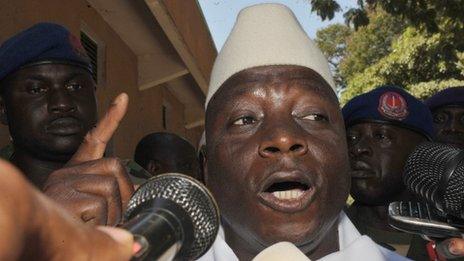
- Published6 August 2019
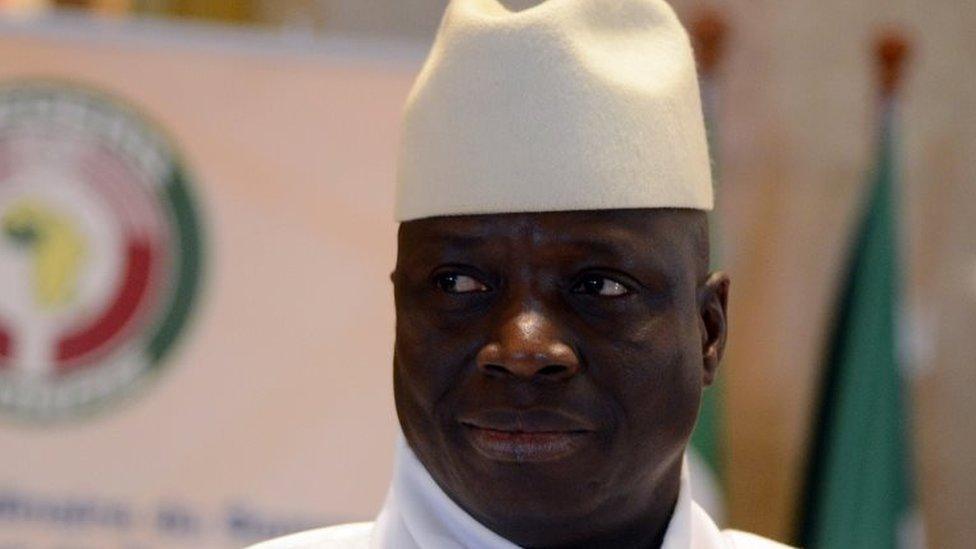
- Published25 October 2018
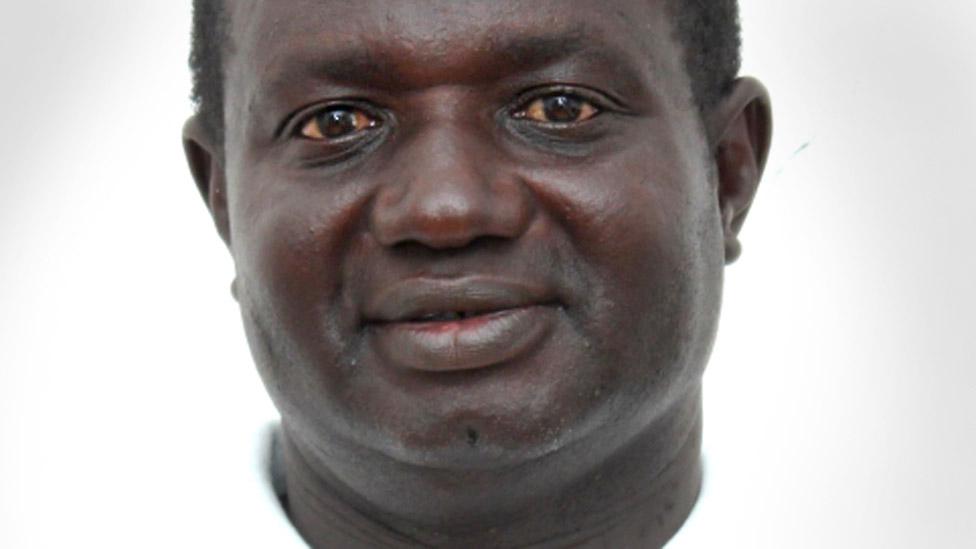
- Published26 June 2019

- Published6 June 2019
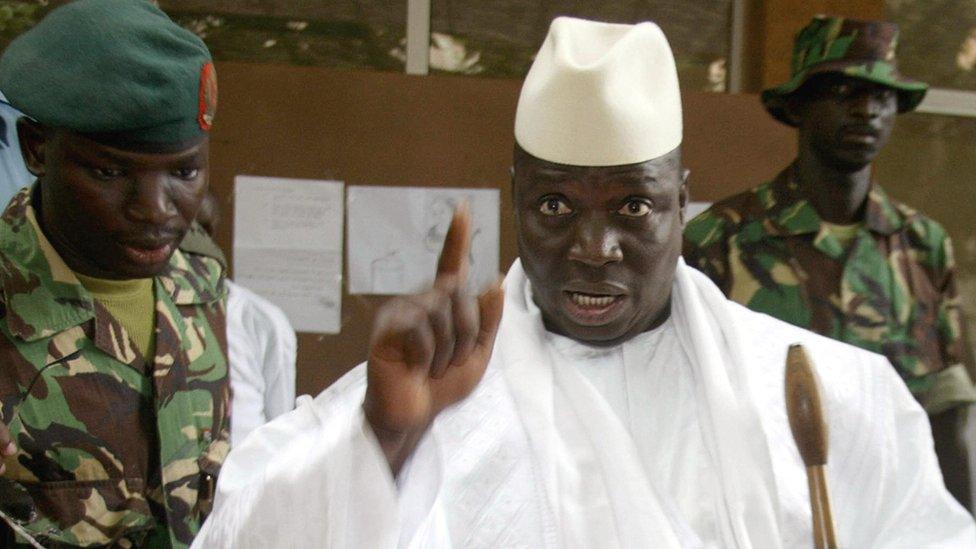
- Published12 April 2023
